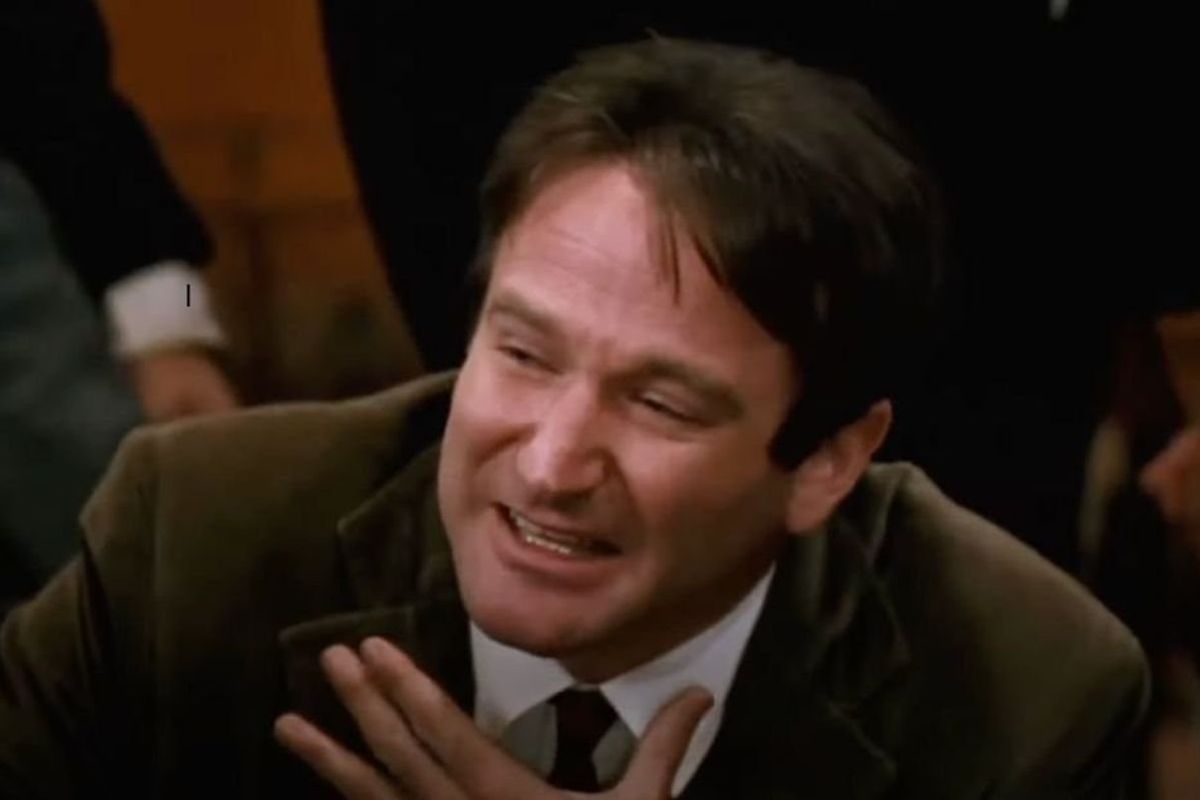When it comes to parenting, sometimes the simplest reframing of how you discipline can make all the difference. In a YouTube video, pediatric occupational therapist Emma Hubbard shares a tip she describes as the "Japanese rule that changes everything."
It's a method called "Shitsuke," which she explains literally translates to "discipline." She claims it's the "one simple rule that Japanese parents follow that helps create calm, respectful, and obedient children."
Hubbard makes it clear from the jump that although the word translates to "discipline," it doesn't carry the same meaning it does in Western culture. Instead, it's about getting ahead of behavioral issues rather than responding to them.
"It's really easy to fall into a cycle that looks something like this," she says. "We wait for our kids to act out, then we punish, lecture, or bargain with them. Shitsuke flips this completely."
- YouTube www.youtube.com
She goes on to explain that Shitsuke strongly urges parents to nurture their children by modeling good behavior and giving clear, consistent instruction.
"It's based on the belief that children develop good manners and courtesy through instruction and practice, not through punishment or hoping they'll just figure it out," she says. "Instead of constantly putting out fires, Japanese parents prevent them by actively teaching the exact behaviors they want to see."
Hubbard shares three main principles of this method:
1. Model the behavior you want to see
It's actually quite simple. Hubbard explains, "Japanese parents understand that kids are observational learners. If you want a calm child, you must be calm. If you want a respectful child, you must be respectful, especially when you're frustrated. And if you don't want your child to scream when they're angry, then you should also try not to scream when you're angry."
2. Be consistent with clear rules
Studies show that children are less anxious when given clear instructions and predictable routines.
"The truth is, rules don't make children unhappy," Hubbard says. "In fact, having no clear rules is what makes them anxious and stressed. Think about it like this. Imagine if you went to work and your boss never told you what time to arrive, what your job was, or even when team meetings started. You'd be anxious, stressed, and confused all day. And that's exactly how your child feels without clear rules."
In an article for Psychology Today, Jenalee Doom, PhD, points out that "both children's and adults' brains love predictability. We can still get pleasure from unpredictable things like surprises, but in general, we feel safe and secure when we have predictable routines, and we find unpredictability to be highly stressful." She goes on to offer suggestions for helping children feel safe, such as keeping regular bedtimes and having meals together.
3. Learn to reframe "naughty" behavior into a learning experience
This is the game changer for many parents, and what Hubbard calls the most important part of the concept.
"This is the most important part of Shitsuke that completely changes everything," she says. "Instead of just saying 'Don't do that' or 'Stop being naughty,' Shitsuke teaches parents to ask one crucial question: 'What skill does my child need to learn here?'"
The clear genius behind this principle is that it takes mistakes (which are going to happen) and turns them into lessons.
"This shift in thinking changes everything because instead of punishing the behavior you don't want, you start actively teaching the skill that they're missing," she adds. "And that's when you see real, lasting obedience because your child actually knows how to behave well."
 A young girl has a tantrum. Photo credit: Vinh Thang on Unsplash
A young girl has a tantrum. Photo credit: Vinh Thang on Unsplash
Hubbard's YouTube video has nearly one million views and over one thousand comments, many of which add insightful thoughts to the conversation.
One commenter stressed the importance of being respectful:
"Something I will add: growing up in Japan, polite behavior was acknowledged and positively reinforced by nearly every adult I interacted with. Not just my teachers, but my pediatrician, my neighbors, the old lady who ran the corner tobacco store, my barber, etc. Saying 'good morning!' or 'thank you!' felt fantastic, because here you are a tiny child being respectfully greeted by big adults. As an adult, I now acknowledge kind American children I encounter with comments like 'thank you, that was very considerate' to pass it on, and I see them smile. I do not have children of my own, but I encourage everyone to notice the children who are trying their best and to thank them for it."
Another commenter backs up the claim that children often thrive when they have set rules:
"Rules don't make children unhappy. 100%. As a teacher, they're the ones who expect me to follow the rules and enforce the consequences all the time. Predictability makes kids happy."
This commenter discusses the value of the words parents use:
"Framing of messages are so important. For example, instead of saying, 'Don't forget…,' rather say, 'please remember.' Or, 'Don't pull the kitty's tail,' instead say, 'Please pet it gently.' Reframe the message from communicating with negatively charged words to positively charged words by telling them what you want them to do, not what you don't want them to do."



 Questions are more effective than facts when it comes to disagreements.
Questions are more effective than facts when it comes to disagreements. Asking people to elaborate leads to more open-mindedness.
Asking people to elaborate leads to more open-mindedness. Curiosity can help people get closer to consensus.
Curiosity can help people get closer to consensus. 
 A young girl has a tantrum. Photo credit:
A young girl has a tantrum. Photo credit: 
 Individual impact isn't as inspiring to Gen Z as it was to
Individual impact isn't as inspiring to Gen Z as it was to  Gen Z is much more black and white about behaviors than previous generations.
Gen Z is much more black and white about behaviors than previous generations. 
 Jimmy Carr became a dad in 2019.Albin Olsson/
Jimmy Carr became a dad in 2019.Albin Olsson/
 A teen girl getting a hug.
A teen girl getting a hug. A teen boy wearing headphones while looking at his phone.
A teen boy wearing headphones while looking at his phone.